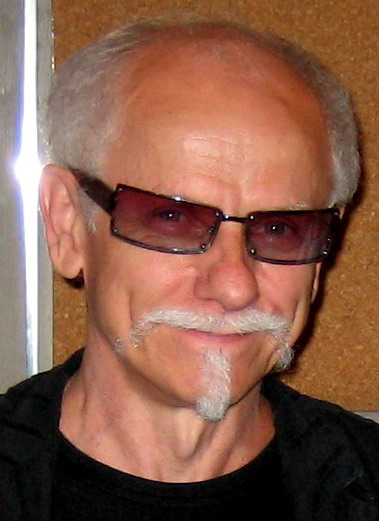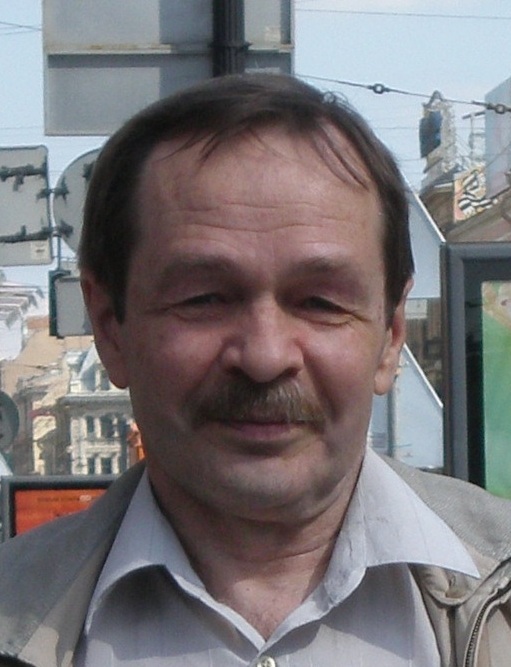The IASTED International Conference on
Automation, Control, and Information Technology
Control, Diagnostics, and Automation
ACIT-CDA 2010
In co-operation with the Russian Academy of Sciences
June 15 – 18, 2010
Novosibirsk, Russia
SPECIAL SESSION ORGANIZERS
Eventological Approaches in Probability Theory and Its Applications
Abstract
Eventology (Vorobyev, 2001), a new direction of probability theory and philosophy, offers the original many-event-based approach to the description of many-agent being and co-being, entering human agents, together with his/her beliefs, directly in the frameworks of scientific research in the form of eventological distribution of his/her own events. This allows us, by putting together probabilistic and many-event-based representation of information and philosophical concept of event as co-being (Bakhtin, 1920), to offer an axiomatizing eventology which expands Kolmogorov's axiomatic of probability theory (Kolmogorov, 1933) and axiomatizes an overlapping sciences mathematical eventolanguage for the description of many-agent being and co-being. The eventological concept of wide dependence of events, the new sight at dependence and independence, in general, and at probabilistic dependence and independence of events, in particular, based on a new concept of power of dependence of events is introduced. Within the limits of wide dependence of events a problem of approximation of eventological distributions by wide-multiplicative set-functions which are designed from its wide-multiplicative projections is considered. Eventological-multivariate expanding local and integrated limit theorems of probability theory is offered. The eventological multivariate variant of limit theorems expands their classical probability interpretation and includes a structure of dependencies of any set of the events appearing in series of independent Bernoulli tests.Biographies of the Special Session Organizers

Oleg Yurievich Vorobyev (b. 1946, Krasnoyarsk, Russia) is a mathematician, specialist in probability theory, statistics and its applications; the founder of Eventology, the science on events; the alumnus of the Leningrad State University (1969); Dr. of Phys.Math.Sc., Professor, a member of the American Mathematical Society (AMS), the Association for the Advancement of Artificial Intelligence (AAAI) and the International Econometric Society (IES); the organizer of the annual All-Russian and International FAM Conferences on Financial and Actuarial Mathematics and Related Fields (2002—2008), the organizer of sessions on eventology at international conferences in the field of uncertainty and control (IFSA'2005, Beijing, EUSFLAT'2005, Barcelona, IPMU'2006, Paris, RPC'2005, Moscow, ACIT'2005, Novosibirsk); main works on probabilistic modeling, probability theory and statistics, eventology and its applications in humanities and socio-economic sciences; more than 120 publications: 9 monographs on eventology and its applications; professor of the Siberian Federal University, the Krasnoyarsk State Trade Economy Institute.
 Arcady A. NOVOSYOLOV (b. 1954, Slavyansk, Ukraine) is a specialist in mathematical risk theory and its applications; graduated from the Novosibirsk State University in 1976 and received PhD degree in 1987; a member of the Global Association of Risk Professionals (GARP), the Professional Risk Managers' Interntional Association (PRMIA) and the Association of Computing Machinery (ACM); a permanent member of organizing committees of the International School in Modeling and Analysis of Safety and Risk (2001—2009) and the International FAM conferences (2002—2009); main works are devoted to system identification and control, probabilistic modeling in risk analysis and economics, published in 1 monograph and over 80 papers; an associate professor at the Institute of Mathematics of Siberian Federal University.
Arcady A. NOVOSYOLOV (b. 1954, Slavyansk, Ukraine) is a specialist in mathematical risk theory and its applications; graduated from the Novosibirsk State University in 1976 and received PhD degree in 1987; a member of the Global Association of Risk Professionals (GARP), the Professional Risk Managers' Interntional Association (PRMIA) and the Association of Computing Machinery (ACM); a permanent member of organizing committees of the International School in Modeling and Analysis of Safety and Risk (2001—2009) and the International FAM conferences (2002—2009); main works are devoted to system identification and control, probabilistic modeling in risk analysis and economics, published in 1 monograph and over 80 papers; an associate professor at the Institute of Mathematics of Siberian Federal University.Submissions
Please email all submissions to [email protected] by February 1, 2010. Authors MUST include their full contact information in the email.









